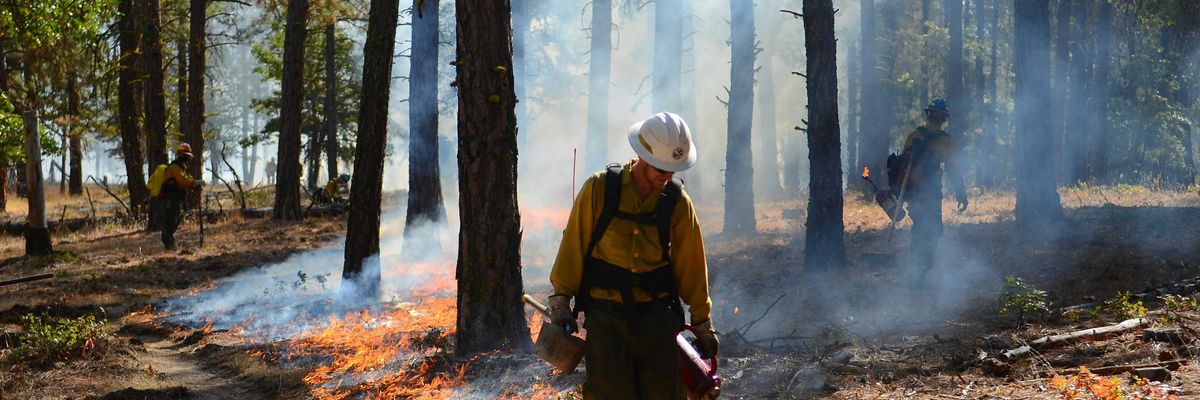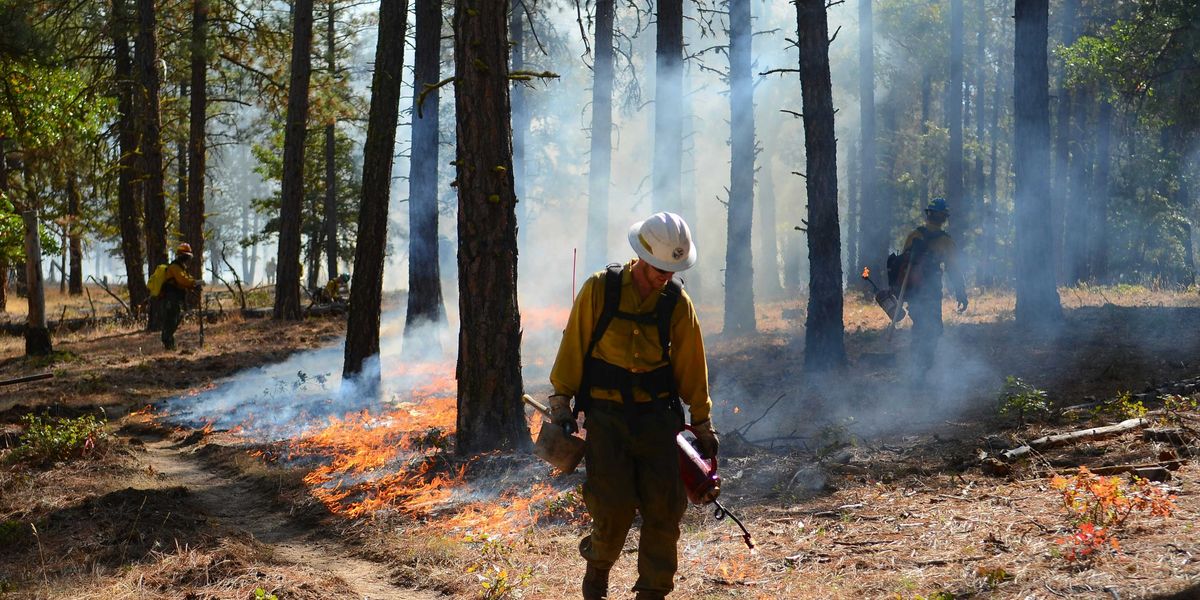new mexico
New Mexico's green hydrogen project faces community and funding challenges
Kit Carson Electric Cooperative in Questa, New Mexico, aims to develop a green hydrogen plant to store renewable energy, but the project must overcome funding issues and local skepticism about water usage.
In short:
- Kit Carson Electric seeks to build a green hydrogen plant to store renewable energy at a former Superfund site in Questa.
- The project faces local concerns over water usage, especially in drought-prone areas, and skepticism about new technologies.
- Securing federal funding is crucial, as green hydrogen projects compete with cheaper "blue" hydrogen alternatives.
Key quote:
"I think in the end, most people are the same. We want affordable rates. We want (electricity) to be on all the time. And we want to have a say in what’s happening within our community."
— Luis Reyes, CEO of Kit Carson Electric Cooperative.
Why this matters:
Green hydrogen represents a potential path to clean energy, but its viability depends on community support and significant investment. Balancing water use with energy needs is especially critical in drought-stricken areas like New Mexico.
Related: Hydrogen energy projects set to transform New Mexico
Explosion at New Mexico carbon capture plant raises questions about oil industry subsidies
A fire at the Piñon Midstream Dark Horse plant in New Mexico revealed how carbon capture operations intended to combat climate change can end up producing more pollution while receiving substantial taxpayer-funded subsidies.
In short:
- The fire at Piñon Midstream’s plant exposed the risks associated with processing “sour gas,” a dangerous mix of methane, carbon dioxide and hydrogen sulfide.
- Despite the environmental damage, the facility may still claim up to $255 million in carbon capture tax credits in the next 12 years.
- The EPA approved the project’s monitoring plan just seven months after the fire.
Key quote:
“If your purpose in encouraging CO2 injection is to reduce the amount of CO2 that’s going into the air, it’s counterproductive to subsidize an industry that’s going to produce more oil and gas and put more CO2 into the air.”
— Preet Bains, research analyst for the Environmental Integrity Project
Why this matters:
Carbon capture projects like Dark Horse are marketed as climate solutions but can paradoxically lead to increased fossil fuel production and higher emissions. Taxpayers may unknowingly fund these projects, which contradict broader climate goals.
Related: 30 environmental advocacy groups ask PA governor to veto carbon capture bill
The fires in Ruidoso, New Mexico have triggered severe floods
Devastating floods have repeatedly hit Ruidoso, New Mexico, following massive wildfires that destroyed 25,000 acres and nearly 1,000 homes, highlighting the escalating threat of climate change-induced disasters.
In short:
- Ruidoso has faced eight major floods since June 21 after two wildfires scorched the area.
- The fires have drastically reduced the soil's ability to absorb rainfall, leading to severe flash floods.
- Residents are in "survival mode," repeatedly repairing flood damage and preparing for more.
Key quote:
“This town is sitting at the bottom of a bowl. And the sides of the bowl have burned.”
— Andrew Mangham, National Weather Service hydrologist
Why this matters:
The connection between the wildfires and floods is stark. Wildfires scorch the land, stripping it of vegetation that would normally absorb rainwater. Without this natural barrier, even moderate rainfall can lead to severe flooding. In Ruidoso, the torrential downpours have turned charred hillsides into fast-moving rivers of mud and debris, compounding the community’s misery.
SCOTUS rejects water deal in Rio Grande dispute
A recent Supreme Court decision has stalled a settlement in the long-standing water dispute over the Rio Grande, impacting New Mexico, Texas, and the federal government.
In short:
- The Supreme Court rejected a proposed settlement to resolve water disputes between Texas and New Mexico, citing federal interests.
- The case, initiated by Texas in 2013, accuses New Mexico of over-pumping groundwater, violating the 1938 Rio Grande Compact.
- Experts warn this decision might embolden federal involvement in interstate water disputes, prolonging litigation.
Key quote:
“Having acknowledged those interests, and having allowed the United States to intervene to assert them, we cannot now allow Texas and New Mexico to leave the United States up the river without a paddle.”
— Supreme Court Justice Ketanji Brown Jackson
Why this matters:
Water rights are critical for agriculture and municipal use in arid regions. This ruling could set a precedent for federal involvement in state water disputes, complicating future negotiations and regional water management.
New Mexico oil reform bill collapses amid industry opposition
New Mexico’s attempt to pass a reform bill to address the state's unplugged oil wells collapsed after industry groups opposed the final proposal they had helped shape.
In short:
- New Mexico's oil industry initially supported negotiations to address over 70,000 unplugged wells but opposed the final reform bill, leading to its collapse.
- The proposed bill aimed to increase financial accountability for well plugging and establish safety zones around wells.
- Industry lobbying and internal disagreements among stakeholders weakened the bill, preventing it from passing the House.
Key quote:
“We are continuing to work with policymakers to advance balanced regulations that enhance safety, sustainability and environmental stewardship and help ensure that American energy is produced responsibly from start to finish.”
— Holly Hopkins, American Petroleum Institute
Why this matters:
Unplugged wells pose significant environmental and public health risks, leaking toxic substances. Without reform, taxpayers may bear the financial burden of cleanup, exacerbating the already critical issue of orphan wells nationwide.
Supreme Court blocks Rio Grande water deal between Texas and New Mexico
The U.S. Supreme Court ruled that the federal government must be involved in any water agreements between Texas and New Mexico concerning the Rio Grande.
Alejandra Martinez and Berenice Garcia report for The Texas Tribune.
In short:
- The Supreme Court's 5-4 decision mandates federal involvement in water management agreements between states.
- Texas and New Mexico's recent agreement excluded federal input, leading to the ruling.
- The decision affects water distribution from the Rio Grande, impacting international treaties and regional drought management.
Key quote:
"We cannot now allow Texas and New Mexico to leave the United States up the river without a paddle."
— Majority opinion of the U.S. Supreme Court
Why this matters:
The ruling underscores the complexity of water management in drought-prone regions and highlights the federal government's role in resolving interstate water disputes. The decision could influence future negotiations and water policies amid increasing water scarcity.
New Mexico town battles fires and flash floods
A New Mexico village facing evacuation orders due to wildfires is now grappling with flash floods caused by heavy rains.
In short:
- Ruidoso, N.M., under evacuation due to the South Fork and Salt wildfires, is now facing flash flooding.
- About 2.5 inches of rain fell in 30 minutes, causing floodwaters to surge down slopes charred by the fires.
- The South Fork and Salt fires have burned more than 23,000 acres, destroyed 1,400 structures, and claimed at least two lives.
Why this matters:
The combination of wildfires and flash floods creates a dual disaster, compounding the risks and challenges for emergency response. Wildfires, which strip the landscape of vegetation, leave the ground unable to absorb sudden downpours, resulting in flash floods. This cycle of destruction not only endangers human lives but also disrupts ecosystems, washing away topsoil and further destabilizing the terrain.









